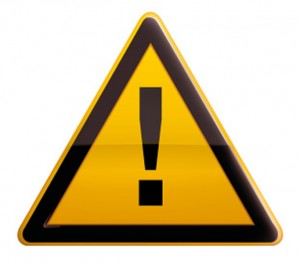Coover Hall Safety Information

All personnel (faculty, staff, students, and visitors) who use laboratory facilities at Iowa State University shall follow the procedures detailed in the ISU Laboratory Safety Manual. Successful completion of appropriate safety training as specified in Safety Training Curriculum for Laboratory Personnel is required prior to beginning work in a laboratory.
At Iowa State University, laboratories are defined as, but not limited to, any location where research or teaching is conducted using hazardous chemicals, biohazardous or biological materials, radioactive materials, radiation producing devices, and/or physical hazards.
View Iowa State University’s Lab Safety Policy Library
View the ECpE Lab Safety Procedures
Safety Coordinator: Phillip Jones
Safety Officer: Matthew Post
The Safety Coordinator is responsible for developing and maintaining departmental safety policies and procedures. The Safety Officer is responsible for implementation of these policies and procedures
The safe operation of the department is the responsibility of all faculty staff and students and is guided by the Infrastructure Planning and Development Committee (IPDC).
Membership of IPDC
- Joseph Zambreno (Chair)
- Henry Duwe
- Lotfi Ben Othmane
- Liang Dong
- Sang Kim
- Anthony Moore
- Jason Boyd
- Matthew Post
Among its responsibilities the IPDC is responsible for:
1) Setting policy related to computer and electronic equipment usage and acquisition within the department.
2) Implementing and ensuring adherence to safety policies in the department, including arranging with lab coordinators for the safe use of computers and all other equipment.
General Lab Safety Guidelines:
- Familiarize yourself with the lab and the location and operation of any and all safety features (e.g., exits, fire extinguishers, safety showers, eye wash facilities, and first aid and spill kits).
- Follow any and all posted procedures and guidelines.
- Make sure that you have documented training, as necessary, for all aspects of lab safety relevant to your work prior to beginning.
- Immediately notify your lab instructor of all accidents and incidents (e.g., spills, splashes, fires, etc.) as well as notify the appropriate emergency personnel, if necessary.
- Wear appropriate protective eyewear while in a room where anyone is working with hazardous chemicals or biological agents, or around physical hazards.
- Use appropriate Personal Protective Equipment, such as approved gloves, safety glasses or goggles, apron or lab coat and clothes that cover most of your skin, such as long pants, and close-toed shoes when using hazardous materials.
- Store all chemicals and other hazardous materials according to ISU policy. Read the MSDS for all chemicals and know your chemical compatibilities/incompatibilities, stability, shelf life and recommended storage conditions.
- Do not use lab equipment for purposes other than those described by the lab instructor and/or those listed in the lab manual(s) for the class.
- Understand and comply with electrical safety procedures.
- For more information regarding safety with helpful links, Click Here
ECpE Laboratory Electrical Safety Rules:
- Remove all jewelry for example: watches, rings, and necklaces, as these can be an efficient conduction path.
- Use only one hand when checking voltages in a circuit.
- Unplug devices BEFORE opening.
- Allow sufficient time for active elements to discharge BEFORE opening.
- Do not apply power until you have double-checked that all connections are correct.
- Do not make any changes to the connections unless power is turned off.
- Verify test probe and equipment ratings before connecting to circuit.
- Closed toe shoes must be worn at all times.
- Confine long hair and loose clothing while in the laboratory.
- Wear safety glasses when soldering.
- When in doubt, stop work, turn off all power and ask for help.
- Do not use cords or leads that have been damaged or frayed.
- Before operating any test equipment read the associated user manual.
- Keep all work areas clean.